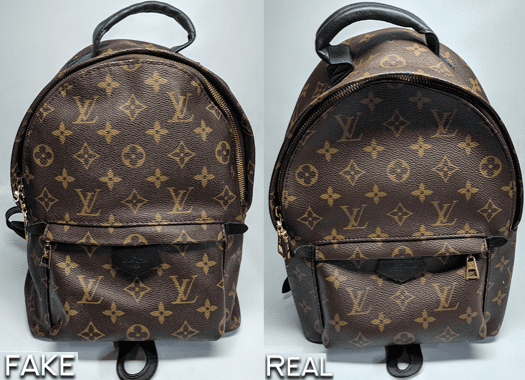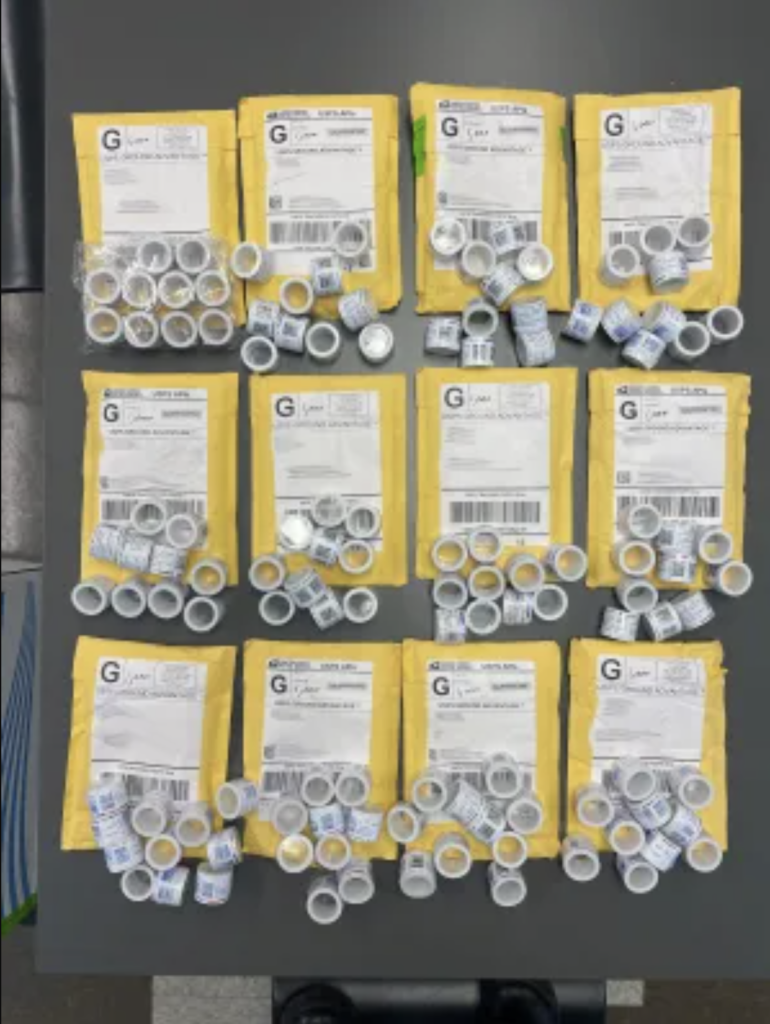CBP Seizes 161,860 Counterfeit USPS Forever Stamps in Chicago, Preventing Significant Loss.
U.S. Customs and Border Protection (CBP) made a significant seizure on Thursday, announcing the interception of 161,860 counterfeit U.S. Forever stamps in Chicago. The operation, carried out by CBP officers from the Anti-Terrorism Contraband Enforcement Team (A-TCET) at the Chicago International Mail Branch, prevented counterfeit postage from entering the U.S. mail system.
The counterfeit stamps, which arrived in parcels from China, had the potential to disrupt the U.S. Postal Service's operations. If they had been genuine, their total value would have exceeded $118,000. The discovery of such a large quantity underscores the growing challenge posed by counterfeit postage and the efforts of CBP to protect the U.S. economy and its mailing systems.
Quality of Counterfeit Stamps: A Growing Concern
CBP officials noted that while the quality of the counterfeit stamps was “poor,” the technology behind counterfeit production is rapidly improving. In fact, counterfeiters are becoming more sophisticated, making it increasingly difficult for consumers to distinguish between fake and authentic USPS stamps. Real USPS postage stamps are produced by the U.S. Bureau of Engraving and Printing, which ensures their security and authenticity.
This recent seizure in Chicago is just one example of a broader trend. According to CBP, the agency has witnessed a “real uptick” in counterfeit USPS stamps, particularly during times of high mail volumes such as the holiday season. Holidays like Valentine’s Day, which generate a significant amount of card and letter mail, see a rise in counterfeit stamp activity.
The Impact of Counterfeit Stamps on U.S. Economy and Consumers
"Counterfeiters only care about making a profit. They don't care about the effect that fake postage has on your ability to send important mail and the overall impact on the U.S. economy," said LaFonda D. Sutton-Burke, Director of Field Operations for Chicago. This statement highlights the broader implications of the counterfeit postage trade. Not only does it undermine the credibility of the U.S. Postal Service, but it also creates potential disruptions for individuals and businesses relying on secure mail delivery.
Consumers often fail to realize that the presence of counterfeit stamps can lead to delays in mail processing, or worse, the return of letters and packages to the sender due to insufficient postage. This scenario can create significant inconvenience for those sending important documents or holiday cards, ultimately affecting the smooth operation of the U.S. mail system.
CBP’s Commitment to Fighting Counterfeit Postage
CBP officers and specialists play a crucial role in identifying and stopping the flow of counterfeit items into the country. These officers are considered some of the most highly trained professionals in the nation, equipped with the knowledge and tools necessary to recognize counterfeit stamps, even when they appear nearly identical to legitimate ones.
"Our officers and specialists are some of the most highly trained in the nation, and their level of expertise is evident with these seizures. CBP officers were able to identify these very realistic counterfeits and stop them from reaching their destinations," Sutton-Burke emphasized. These expert interventions prevent counterfeit stamps from entering the U.S. mail system, ensuring that consumers and businesses continue to rely on genuine postage for their mail.
Trademark Violations and Legal Ramifications
The counterfeit stamps seized by CBP violate U.S. trademark laws, which protect the integrity of official postal products. Counterfeiters who produce and distribute fake stamps risk significant legal consequences, including fines and imprisonment. By intercepting these shipments before they can reach consumers, CBP helps to uphold trademark protections and maintain the trust that Americans place in their postal system.
The Growing Problem of Counterfeit Goods: What Consumers Should Know
As technology advances, counterfeit goods of all kinds—whether stamps, luxury items, or electronics—are becoming more difficult to detect. This poses a significant challenge not only to law enforcement but also to consumers who unknowingly purchase these goods. In the case of counterfeit USPS stamps, the stakes are particularly high because fake stamps can affect individuals' ability to send mail and the timely delivery of important communications.
A Call for Awareness and Vigilance
Consumers are encouraged to be vigilant when purchasing stamps, particularly from online platforms, where counterfeit items can easily slip through. One way to ensure authenticity is to buy stamps directly from the U.S. Postal Service or authorized retailers. Additionally, individuals should check for any irregularities in the print quality or features of a stamp that might indicate it is counterfeit.
U.S. Counterfeiting Laws and Recent High-Profile Convictions
Counterfeiting is a serious offense in the United States, with significant legal consequences for those involved in producing, distributing, or trafficking counterfeit goods. The U.S. government has enacted strict laws, including the Lanham Act and the U.S. Code Title 18, Section 2320, to combat this crime. Under these laws, counterfeiting involves the unauthorized reproduction of products that bear a counterfeit trademark or brand, such as clothing, electronics, and money.
The penalties for counterfeiting in the U.S. are severe. Convictions can result in up to 10 years in prison for felony-level offenses, fines, and restitution. The Lanham Act provides civil remedies for trademark owners, allowing them to sue for damages caused by counterfeiting.

LV - counterfeit goods real v fake
Recent High-Profile Convictions
Haotian Sun and Pengfei Xue (2017-2019)
These two Chinese nationals orchestrated a scheme to defraud Apple by submitting over 6,000 counterfeit iPhones under warranty claims. Sun was sentenced to 57 months in prison and ordered to pay over $1 million in restitution to Apple, while Xue received 54 months in prison and was required to repay $397,800.
Adama Sow and Abdulai Jalloh (2022)
In a landmark counterfeit goods case, Sow and Jalloh trafficked luxury counterfeit products including handbags, shoes, and clothing. Their operation led to the seizure of goods valued at over $1 billion. They face severe penalties, with sentencing still pending.
Liao Wei and Zhou Pizhong (2023)
Liao and Zhou were arrested for second-degree trademark counterfeiting involving a range of products. They face up to four years in prison if convicted.
These convictions reflect the U.S. authorities' commitment to combating counterfeit goods, which can undermine the economy, deceive consumers, and damage brand integrity. With counterfeiters becoming increasingly sophisticated, law enforcement remains vigilant, ensuring those engaged in this illicit trade face justice.
Protecting the Integrity of the U.S. Postal Service
This recent seizure of counterfeit USPS Forever stamps in Chicago highlights an ongoing issue with counterfeit goods entering the country, particularly during high-volume mail periods. While the quality of counterfeit stamps may improve over time, the vigilance and expertise of CBP officers remain critical in preventing fake postage from reaching consumers. The work of CBP not only protects the U.S. Postal Service but also ensures the integrity of the broader economic system by upholding the rule of law and maintaining the trust of the public.
With the rise in counterfeit postage, it is more important than ever for consumers to remain informed and cautious about where and how they purchase stamps. By doing so, they can help protect themselves and the U.S. economy from the negative impacts of counterfeit goods.

















